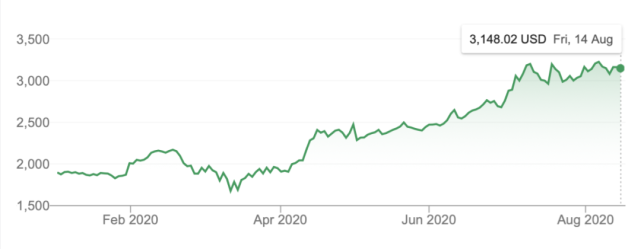“SLOWLY but surely, English is losing importance,” quipped Jean-Claude Juncker, the president of the European Commission, before switching into French to deliver a speech on May 5th. Is this true? Not really, and it seems not to have been intended as seriously as easily-offended British headline-writers took it. After all, Mr Juncker, who is known for going off-script in his speeches, delivered his barb in English, and the audience laughed.
“英语正在失去它的重要地位,速度缓慢但结局肯定。”5月5日,欧洲委员会主席让-克洛德·容克如是调侃道,接着就将语言切换成法语进行演讲。这是真的吗?不见得如此,而且容易被激怒的英国标题作者似乎也没有那么当真。毕竟,以脱稿演讲而著称的容克先生在讽刺时,使用的还是英语,而且观众笑了。
In any case, speakers of la langue de Shakespearehave little to worry about. The European Union has 24 official languages, three of them considered “working languages”: French, German and English. Eurocrats are polyglots, often able to speak all three working languages plus another of their own. Mr Juncker may be right that in the halls of the EU’s institutions, English will be heard somewhat less after Brexit, simply due to the exodus of a big group of Anglophones. But English is not just British; it is also an official language in Ireland and Malta. More important, the three enlargements of the EU since 2004 have decisively shifted the balance in Brussels from French towards English. There is no consensus for going back, still less for switching to German.
无论如何,说莎士比亚语言的人都用不着担心。欧盟有24门官方语言,其中3门被视为“工作语言”:法语,德语和英语。欧洲官僚通晓数种语言,经常都会讲这三种语言,再外加一门自己的母语。容克先生有一点可能是对的,即英国脱欧后,在欧盟各种机构的大厅里,英语不会像以前一样听到得那么频繁,原因很简单,大批以英语为母语的人已经离去。但是,英语不只是英国人说的语言,它还是爱尔兰和马耳他的官方语言。更为重要的是,从2004年以来欧盟经历了三次扩大,直接导致欧盟的语言天平从法语倾斜到了英语。没有共识认为会倾斜回去,更不可能倾斜到德语。
Besides, English is putting down deep roots among ordinary people on the continent. For all of France’s famous linguistic nationalism, it is telling that François Hollande, France’s outgoing president, was mocked on Le Petit Journal, a French news and entertainment show, for his ropey English. Emmanuel Macron, a generation younger, is perfectly fluent. Fully 66% of EU citizens speak another language, a number that is growing steadily. Eurostat, the EU’s statistics agency, does not break those figures down by language spoken, but it is easy to extrapolate from languages studied at school. Among students in lower secondary school outside Britain, 97% are studying English. Only 34% are learning French, and 23% German. In primary school 79% of students are already learning English, against just 4% for French. Some countries, like Denmark, begin English in the very first year of school.
况且,英语已经扎根于欧洲大陆的普通公民。就法国的语言民族主义而言,据说法国即将卸任的总统弗朗索瓦·奥朗德,因其蹩脚的英语口语在《小巴黎日报》中被嘲弄了一番。比他小一辈的伊曼纽尔·马克龙说着一口流利的英语。高达66%的欧盟公民会讲一门外语,这个数字还在稳步增长。欧盟统计局Eurostat并没有按照外语种类将这些数字细分,但是,很容易从学校里学习的语言中推断出来。除了英国之外,欧洲其他国家的初中生中,97%都在学习英语。学习法语的仅占34%,学习德语的占23%。小学生中,79%的已经开始学习英语了,而学习法语的只占4%。有的国家从小学一年级就开始教英语了,比如丹麦。
A language increases in value with the number of people able to speak it, so languages that are valuable tend to become more so over time. And language knowledge takes a long time to acquire; societies do not quickly change the languages they speak. The trend of English in Europe began well before the vote for Brexit, and is unlikely to dissipate, even “slowly but surely”. Mr Juncker might better have said that while Britain, unfortunately, is exiting the EU, Europe will always remember the linguistic gift it is leaving behind.
一门语言会随着讲它的人增加而增加,因此,有价值的语言会随着时间变得越来越多。学习语言知识需要很长时间,一个社会的语言不会很快发生改变。欧洲英语的趋势早在英国脱欧公投之前开始显现,且不可能发生改变,或所谓的“速度缓慢但结局肯定”。容克先生可能更好是在英国不幸真正脱欧时再说那番话,欧洲将会永远记住英国留下的语言财富。
限 时 特 惠: 本站每日持续更新海量各大内部创业教程,一年会员只需98元,全站资源免费下载 点击查看详情
站 长 微 信: lzxmw777






